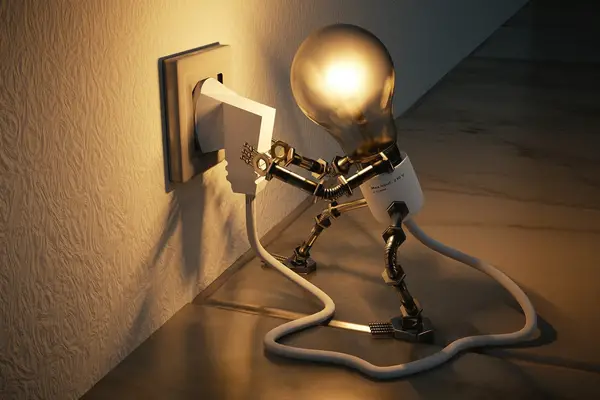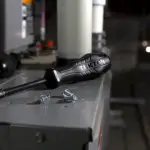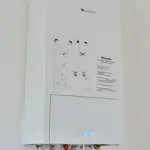
You may have just found the perfect property to buy, but there’s only one problem, it has electric heat. So if you’re wondering should you buy a house with electric heat, this article will help you to decide.
So should you buy a house with with electric heating? Buying a house with electric heat isn’t a problem if the heating units are modern and the home has good insulation. But if the house has electric storage heaters you should plan to replace these with a cheaper and more efficient system. If a gas not available an electric boiler is good option.
Is electric heat expensive?
To heat a house with electric heat is more expensive than gas central heating. To heat the average house with electric storage heaters cost around £900 per year vs £550 each year for gas central heating. Which means that electric heat is expensive and not as desirable as gas central heating.
Having said that, there are alternatives to electric storage heaters which are cheaper to run. But the upfront cost tend to be more expensive and they often have other drawbacks. This is best explained by way of a table, see below.
The choice you have buying a house with electric heat is to have expensive heating bills or to be constantly freezing in the winter. Unless of course you don’t feel the cold. However, make sure you read the section below about the saleability of a house with electric heat before you buy.
But as mentioned above, what will make a difference is how well the house is insulated. Make sure the EPC (energy performance certificate) rating is in the green zone, indicating good insulation.
What are the types of electric heat?
There are a number of types of electric heat, which are best explained by way of a table, as follows:
Types of electric heat table
| Type of Electric Heat | Cost | Annual Running Cost (Ave Hse) | Comments | Other Ways To Save |
|---|---|---|---|---|
| Electric Boiler | £500-£2,000 (Plus installation*) | £900-£1,300 | Gas Boilers are cheaper to run | Install Solar Panels to reduce cost of electric |
| Storage Heaters | £350-650 per heater Plus installation | £325 per storage heater with 2.55kw output | If the house has storage heaters don't replace them with new. Plus try to replace with a cheaper option | Install Solar Panels to reduce electric cost |
| Ground Source Heat Pump | £10,000-£18,000 | £400-500 each year | Only suitable if you have the land to install, plus expensive upfront investment. Works better with underfloor heating. (But grants/incentives are available) | Install Solar Panels to run the pump |
| Air Source Heat Pump | £5,000-£8,000 | £400-£500 | Works better with under floor heating. (But grants/incentives are available) | Install Solar Panels to run the pump |
| Baseboard Heaters | £80-£450 per baseboard heater plus installation cost | 13p Per Baseboard heater For 2kwh | If the house has baseboard heaters don't replace them with new. Plus try to replace with a cheaper option | Install Solar Panels to reduce electric cost |
| Infrared Panels | £125-£500 per Panel | £125 per panel for equivalent heat output of storage heater | Running costs are approx. 1/3 of cost to run storage heaters | Install Solar Panels to reduce cost of electric |
Buying a house with storage heaters
If the house you are buying has storage heaters you should plan to replace these with a cheaper and more efficient heating system.
The worst time to have storage heaters is at the start and end of winter when they are not practicable. Storage heaters work by storing heat over night. Which means they need to be switched on the night before.
This is why at the start of winter you can get caught out. This happens when there’s a sudden cold snap and you’ve not yet switched the electric storage heaters on.
At the end of winter the reverse can happen. You can end up with heat stored to warm your house on a warm early spring day when its not required. The result is you have to open the windows to cool down.
So not only are storage heaters one of the worst forms of heating you can have, they are very expensive to run.
What would it cost to install gas central heating to replace the electric heating?
To install a gas central heating system from scratch will cost between £3,250 to £4,250. This cost includes the installation of a gas boiler, the radiators and pipes in an average 3-bedroom house.
There’s going to be a lot of upheaval to have this installed in your home, which means it would be better to move out whilst this happens. The typical time it takes to install a gas central heating system is around 5 days. However, this timescale will be extended if you remain in the house or if you want pipework chased into the walls.
On top of this cost you will need to factor in the removal of your old electric heating system. If the storage heaters are hard-wired you should use an approved and qualified electrician to do this work.
What are the pros and cons of buying a house with electric heating?
There are always pros and cons of any heating system in a house. So what are the pros and cons of buying a house with electric heat?
Pros of buying a house with electric heat
- Electricity is readily available to most homes.
- It’s an instant source of heat (Except if you use storage heaters which store heat during the night to slowly release during the day).
- You can fit solar panels to reduce yearly running costs.
- Electric is seen as a greener energy source than gas.
- Electricity is a stable and common source of energy.
Cons of buying a house with electric heat
- Cost of electricity is high.
- Homes with electric heat are less desirable and more difficult to sell.
- Homes with storage heaters are inefficient and undesirable.
- Electric storage heating is a very drying heat and will create a dry indoor climate.
Consider saleability when you buy a house with electric heat
Houses with electric heating are less desirable than houses with gas central heating. As a result this means they achieve a lower market price compared to other similar houses with central heating.
You should therefore do your research. Look at similar houses in the area that have central heating to make sure you don’t over pay for the house with electric heat.
This is either to allow for the cost of installing a better alternative heating system. Or to compensate for the property’s lower perceived value, which will impact you when you come to resell if you keep the electric heating system.
If the house has been on the market for some time. Or if the price has been dropped from the original listing price, both these factors indicate something is wrong and either buyers don’t like the house or because it’s over priced. This is an extremely useful article to check this before you view a property, which includes a section on can you see price history on Rightmove.
I suggest you take a read of this article too about how you make an offer below asking price. In this article, point 8 is key for getting a bargain price when buying a house!
What to do before you buy a house with electric heat
Before you buy a house with electric heat, ask the owner to see copies of their electric bills to confirm the yearly running costs. At least if you know how much the running costs are, you’ll be able to make an informed decision.
As already mentioned, make sure the house has a good energy performance certificate (EPC) rating. If the rating is not in the green band, check to see what the potential is and if the house can be brought up to the green bands. If not, and unless you can install a cheaper and more efficient heating system, carefully consider whether you buy this house with electric heat.
To conclude whether should you buy a house with electric heat
If you are buying a house as first time buyers you may not realise that electric storage heaters are less than ideal.
If the house you intend to buy has electric storage heaters, you should factor into your buying decision the cost of replacing this electric heat with an alternative system.
One of the best alternatives to electric heat is gas central heating. You may like to have a quick read of this article about buying a house without central heating. Pay particular attention to the section about affording the cost of installation and the example explained.
At the end of the day, no house will be perfect. If everything else fits your search criteria and the house ‘feels‘ right, you should go for it. But only if the purchase price reflects the fact the house has electric heating. But also preferably if you are able to and have budgeted to change the heating system.
I hope you’ve enjoyed this article about should you buy a house with electric heat
If you’ve enjoyed this article about should you buy a house with electric heating please share it on your favourite social media site.
Also, if you have any questions, please feel free to comment below too. Please also share any of your experiences with properties you’ve bought. Alternatively, if you need more help, please feel free to contact us on our contact us page here. Or join the discussion and ask your question in the property forum.




